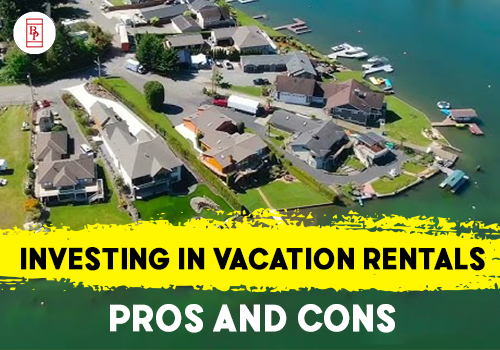 The charm of having a vacation rentals property is unmistakable. Imagine the perfect Outer Banks beach cottage, generating income while offering you a personal getaway. But before diving headfirst into this investment, it's crucial to weigh the pros and cons.
The charm of having a vacation rentals property is unmistakable. Imagine the perfect Outer Banks beach cottage, generating income while offering you a personal getaway. But before diving headfirst into this investment, it's crucial to weigh the pros and cons.
Pros: Financial Gain and Appreciation
Holiday rental properties have the potential to be a profitable income stream. Popular destinations like the Outer Banks experience high tourist traffic, translating to potentially consistent bookings. Rental income can offset the mortgage, property taxes, and maintenance costs. Additionally, vacation homes, like Kirkland WA Real Estate, tend to appreciate over time. This means you could potentially sell the property for a profit down the line.Tax Advantages
Owning a vacation rental comes with tax benefits. Many rental expenses, from mortgage interest to cleaning fees, can be deducted from your rental income, lowering your taxable income.Flexibility and Personal Use
Unlike traditional rentals, you have more control over the availability of your vacation property. You can block off personal use periods to enjoy the property yourself or with loved ones. This flexibility is a significant advantage for those who dream of owning a second home in a desirable location.Cons: Management and Maintenance
Managing a vacation rental requires time and effort. You'll need to handle marketing, booking guests, responding to inquiries, and ensuring a smooth check-in/checkout process. Consider hiring a property management company to handle these tasks, but that comes with additional costs.Maintenance is another ongoing responsibility. Vacation rentals experience higher wear and tear due to frequent guest turnover. Addressing repairs and ensuring the property remains in top condition is crucial for maintaining positive guest reviews and attracting future bookings.
Unpredictable Income and Seasonal Fluctuations
Rental income can be unpredictable. While the Outer Banks experiences peak seasons, there might be off-peak periods with lower occupancy rates. This can impact your cash flow.Regulations and Legal Considerations
Different municipalities have regulations regarding short-term rentals. Research local laws regarding licensing, permits, and zoning restrictions before investing. Additionally, consider potential legal issues like guest injuries or property damage.The Bottom Line
Investing in vacation rentals can be a rewarding experience, but it's not a get-rich-quick scheme. Carefully consider your financial goals, risk tolerance, and time commitment. Research the vacation rental market in your chosen destination, for example, Seattle Real Estate and factor in potential costs and income streams.For example, the Outer Banks offer a vibrant rental market, but competition can be high. Consider the property type, location, and amenities that would attract renters.
Making an Informed Decision
Consulting with a financial advisor and a real estate agent specializing in vacation rentals is highly recommended. They can guide you through the investment process and help you make informed decisions. By carefully weighing the pros and cons, you can determine if investing in vacation rentals aligns with your financial goals and lifestyle.
We would like to hear from you! If you have any questions, please do not hesitate to contact us. We are always looking forward to hearing from you! We will do our best to reply to you within 24 hours !

